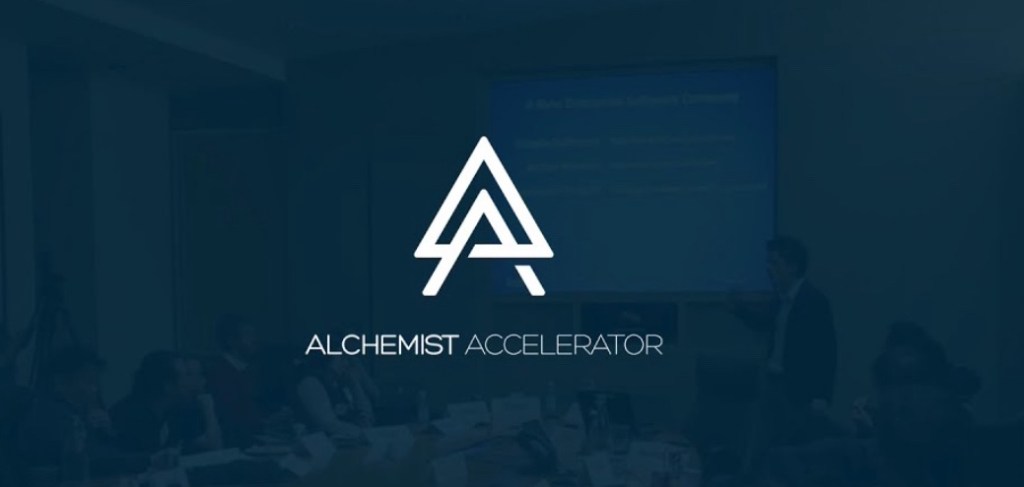It’s that time again! Today is the 28th Demo Day for Alchemist, an accelerator that primarily focuses on enterprise companies — or those that sell to other companies, primarily, rather than directly to consumers.
This latest cohort comes in at 23 companies. Like the last few Alchemist batches, this one was entirely virtual — a move that Alchemist director Ravi Belani tells me has proven to work well, noting that attendance of their virtual demo day is “up 100%” over its in-person equivalent.
I hopped on a call with Belani, who gave me a rundown of what each company is working on and shared some updates on the accelerator itself. Some of those updates:
- Alchemist has raised another $4 million in funds to invest, backed by NEC, Johnson Controls and Nornickel.
- The accelerator (via its AlchemistX arm) is starting to build out regional programs, working with government organizations to help them figure out how to nurture local startups. The first programs will be launched in Canada, Japan and Korea. In Canada, for example, it’s working with Innovate Edmonton on an accelerator program focused on community safety.
- Alchemist companies have now raised more than $1.7 billion in funding, collectively.
Alchemist’s Demo Day will be streamed live later today beginning at 10:30 AM Pacific.
Meanwhile, here are the 23 companies in the order they’re expected to present:
Codelock: An automated system that aims to prevent any unauthorized changes to your company’s application by signing and monitoring “every line of code”.
Creatify: A simplified platform for buying and selling NFTs, allowing creators to quickly put together a white-labeled NFT marketplace that plays friendly with multiple blockchains.
EngFlow: A system meant to help developers compile their code faster (5-10x faster, in their cited examples) by distributing the build process across multiple machines.
Speechki: A text-to-speech tool for creating audiobooks from synthetic voices. Allows publishers to choose from one of over 200 voices, and tweak the results (pacing, pauses, etc.) to their liking.
Moodbit: An AI-powered system that aims to detect when employees are losing interest or becoming burned out, automatically suggesting “science-based nudges” to help.
Knowron: A virtual assistant built just for industrial service workers, allowing them to say something like “Why is this machine heating up?” and have it blast through said machine’s service manuals and offer up insights on what might be wrong. Also helps to flag things like which machines cause the most issues or slowdowns.
11Sight: Browser-based video/audio call widget that can be placed on your website to quickly connect potential customers with your sales team, then track leads and integrate that data into your CRM accordingly.
The Bright App: An all in one platform for virtual personal trainers (weightlifting, yoga, dance, etc.), helping them to handle things like booking and payments. The company says they’ve already got more than 2,000 trainers onboarded.
Copyright Delta: A blockchain-based platform for verifying and managing who owns the rights to a piece of media.
Gaudium.AI: Generative AI for helping your social media team come up with new posts, generating unique copy within your specifications.
Arcturus: A “climate data analytics” tool meant to help companies identify shortcomings in their sustainability plans, or help asset managers determine how climate change and new regulation will impact their portfolio.
AltComm: An in-office tool meant to help patients with communication barriers more easily and accurately communicate with their doctors.
OnTrack Rehab: An in-home training program meant to help seniors improve their balance and reduce falls. Evaluates their progress through 15-minute exercises four times a week.
Sensory Robotics: A computer vision-based safety system for factories; using redundant 3D cameras, it watches for things like a robotic arm that’s about to collide with a human and adjusts its behavior (slowing, stopping or changing the path of the machine) accordingly.
Direktiv: It’s honestly a bit over my head, but Direktiv pitches itself as a platform-agnostic “event-driven serverless orchestration engine” in the cloud.
EMBER Medical: A telemedicine and doctor-visit booking platform built for the Middle East/North Africa. The company says it currently has over 900 doctors on the platform.
Simularge: Creates a “digital twin” of a manufacturing line to help find inefficiencies and potential cost-reductions.
Fixtender: A platform for those handling/overseeing bids on large construction projects, aiming to move the process out of e-mails/spreadsheets and into something much more contained and easily perusable.

Tensorfield Agriculture: Autonomous weed-killer robots for agriculture, using computer vision to identify weeds in crops and precisely spray them with heated vegetable oil to kill them.
ExoVibe: a “digital ergonomics” platform that uses motion capture data to identify ergonomic risks in the workplace and, hopefully, prevent injury.
Freightify: Pitching itself as “Shopify for maritime freight”, Freightify gives freight forwarders an online store and the tools to handle it. We wrote about Freightify here.
Esper Bionics: Building a prosthetic hand that they say “improves and gains abilities over time”, with machine learning-powered signal detection that helps it grow more accurate as the user wears it.
QVALON: A cloud-based platform for retail store management, giving retail teams a place to communicate, track tasks, report issues and keep an eye on performance.































Comment